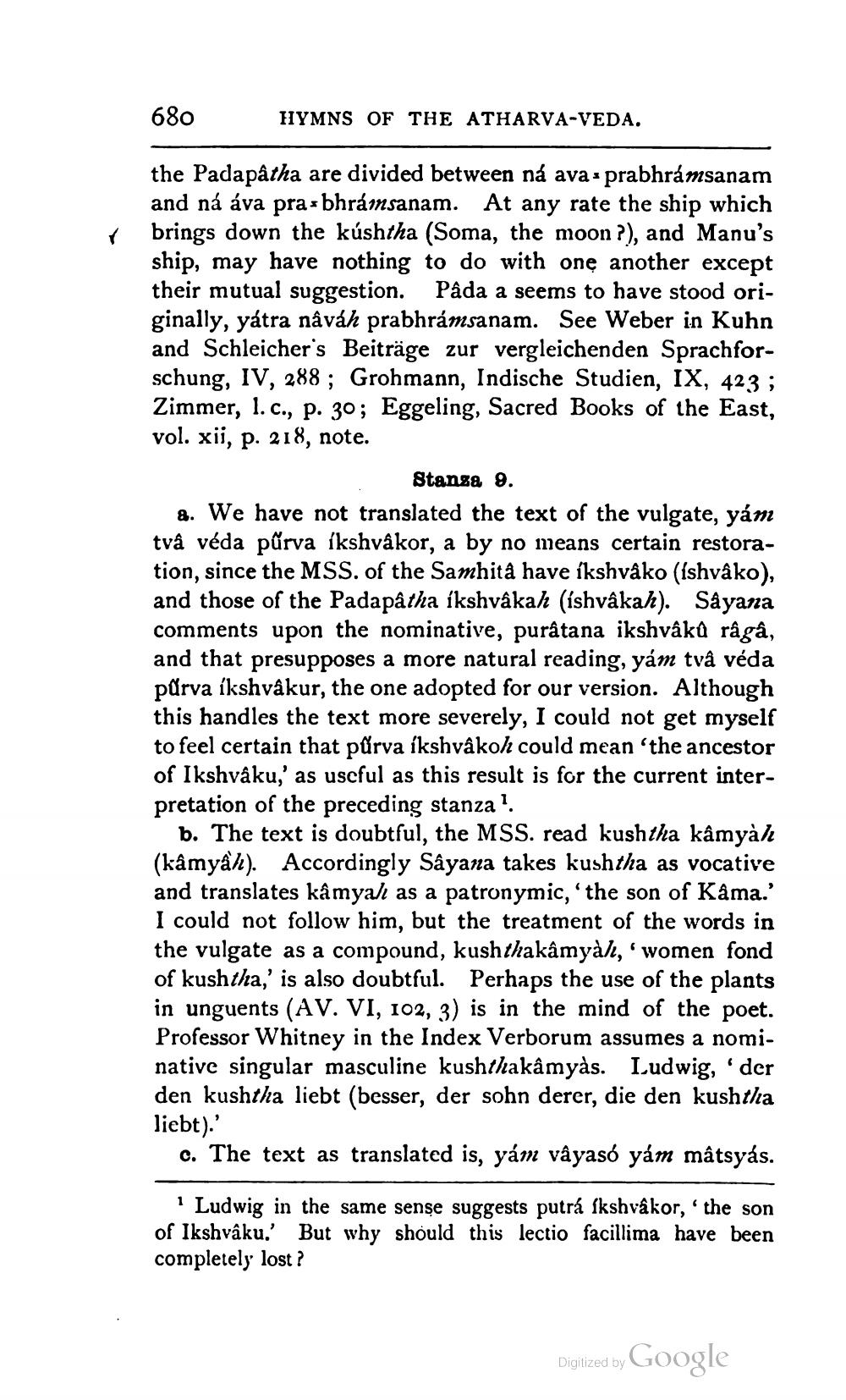________________
680
the Padapâtha are divided between ná ava-prabhrámsanam and ná áva pra-bhrámsanam. At any rate the ship which brings down the kúshtha (Soma, the moon ?), and Manu's ship, may have nothing to do with one another except their mutual suggestion. Pâda a seems to have stood originally, yátra nâváh prabhrámsanam. See Weber in Kuhn and Schleicher's Beiträge zur vergleichenden Sprachforschung, IV, 288; Grohmann, Indische Studien, IX, 423; Zimmer, l. c., p. 30; Eggeling, Sacred Books of the East, vol. xii, p. 218, note.
HYMNS OF THE ATHARVA-VEDA.
Stanza 9.
a. We have not translated the text of the vulgate, yám tvâ véda purva íkshvâkor, a by no means certain restoration, since the MSS. of the Samhitâ have íkshvâko (ishvâko), and those of the Padapâtha íkshvâkah (íshvâkak). Sâyana comments upon the nominative, purâtana ikshvâkû râgâ, and that presupposes a more natural reading, yám tvâ véda purva íkshvâkur, the one adopted for our version. Although this handles the text more severely, I could not get myself to feel certain that purva íkshvâkoh could mean 'the ancestor of Ikshvâku,' as useful as this result is for the current interpretation of the preceding stanza1.
b. The text is doubtful, the MSS. read kushtha kâmyàl (kâmyah). Accordingly Sâyana takes kushtha as vocative and translates kâmyal as a patronymic, 'the son of Kâma.' I could not follow him, but the treatment of the words in the vulgate as a compound, kushthakâmyà, 'women fond of kushtha,' is also doubtful. Perhaps the use of the plants in unguents (AV. VI, 102, 3) is in the mind of the poet. Professor Whitney in the Index Verborum assumes a nominative singular masculine kushthakâmyàs. Ludwig, 'der den kushtha liebt (besser, der sohn derer, die den kushtha liebt).'
c. The text as translated is, yám vâyasó yám mâtsyás.
1
Ludwig in the same sense suggests putrá íkshvâkor, 'the son of Ikshvâku.' But why should this lectio facillima have been completely lost?
Digitized by Google




